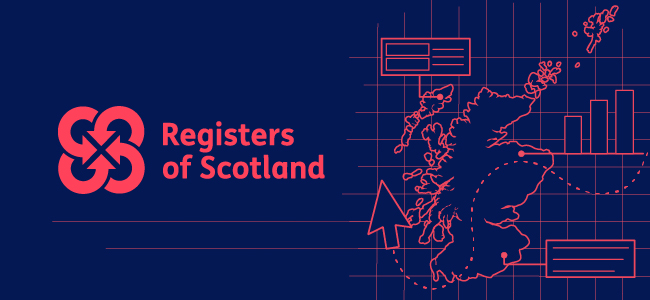Digital
Moveable Transactions Project: active learning and applying lessons in real time
September 4, 2024 by Stewart Hamilton No Comments | Category Digital Assurance Office, Digital Scotland, Technology Assurance Framework
Guest blog by Laura Johnstone, Continuous Improvement team, Digital Assurance Office.
Introduction
Registers of Scotland (RoS) are undertaking a project to build, launch and maintain two new public Registers, introduced by the Moveable Transactions (Scotland) Act 2023. The timeline for the commencement of the Registers is dependent on the implementation of secondary legislation. The Digital Assurance Office have been working with RoS to capture and share some of their experiences from the Moveable Transactions project. This is the first in a series of three case studies.

Context
The Moveable Transactions project has received assurance under the Technology Assurance Framework with major digital project reviews and a Discovery Digital Scotland Service Standard (DSSS) assessment.
The major digital project reviews have recognised the project team as being exemplary in their:
- transparency of approach
- approach to active learning and applying lessons in real time
- sharing and exchanging information with other organisations with constructive acceptance of feedback
This case study explores how RoS approached and embedded active learning and applying lessons in real time.
Activities
- the project was designed with collaboration in mind, with the scope of stakeholder engagement work reflected in the business case
- the business case process in RoS required lessons learned from previous projects to be evidenced – the team learned from the experiences of a previous Register where a key learning point had been the need for earlier, more extensive stakeholder engagement
- stakeholder engagement for the Moveable Transactions project was largely with a new customer base, the team made use of some existing networks to make introductions but mostly it involved engagement with new users
- the team engaged early with other jurisdictions in the development and use of this type of register and worked closely with Scottish stakeholder groups
- the approach taken aimed to bring future users of the Register on the journey and work collaboratively on its design, there was also close engagement with internal users to understand what can be done better as a service
- after a period of user research concluded there was time for the team as a whole to reflect on the outputs from it
Reflections
- strong stakeholder engagement was enabled by having the right team structure with a user centred approach, good project planning was essential to build in the space for genuine stakeholder engagement
- the earlier you can begin user engagement, the better – developing effective collaborative relationships took time and investment, in person sessions were helpful to build solid foundations
- user research needs to drive action – at times constraints, for example the legislative context, meant change wasn’t possible but user research was used to challenge assumptions and inform design
- bring discussions to life by showing prototypes, even at an early stage, to stimulate discussion
- culturally, RoS has ingrained working with customers, speaking to users up front and making sure that everybody impacted by a new product or service has got a voice – this is established practice and customers were open to working in this way and keen to be involved
- there are two other case studies to be published in this series, focusing on governance and multi-disciplinary teams – in both of these case studies the organisational structures in place in RoS showed a systematic approach to sharing lessons and capturing and acting on opportunities to improve practice
Find out more
For more information about this case study contact PMO.Support@ros.gov.uk.
The Technology Assurance Framework (TAF) is designed to help prevent digital projects from failing for common reasons, improve delivery and ensure that the lessons learned from previous experience are reflected and embedded in future practice. The Digital Assurance Office are working with organisations to share information which might help others deliver digital projects and we have been publishing our insights and case studies on our digital blog. If you want to get involved contact us at DigitalAssurance@gov.scot
For further information and signposting to advice and support on programme and project management contact the Programme and Project Management Centre for Expertise. The Scottish Government programme and project management principles are available and apply to any project of any size.
The Scottish Digital Academy is the public sector centre of expertise for digital capability and can provide information, advice and guidance on developing digital, data and technology skills to support transformation.
For expert guidance on delivering a digital project visit the Digital Scotland Service Manual.
The Social Security Programme: Our Story Team are part of a wider legacy portfolio, whose goal is to capture and disseminate over eight years of acquired knowledge, capabilities and lessons learned to demonstrate that irrespective of the size, nature or maturity of your Programme, your profession or career pathway, ‘Our Story’ has the potential to build individual and team skills and capabilities whilst improving the effectiveness and quality of your delivery. They do this through a variety of means from building case studies, interviews and blogs to facilitating workshops and resource loans, for the benefit of Social Security Scotland, the wider Scottish Government and public sector. You can access their resources on Pathways or contact the team: socialsecurity.ourstoryteam@gov.scot
Tags: Continuous Improvement, Digital Assurance Office, Moveable Transactions, Registers of Scotland, Technology Assurance Framework

Leave a comment